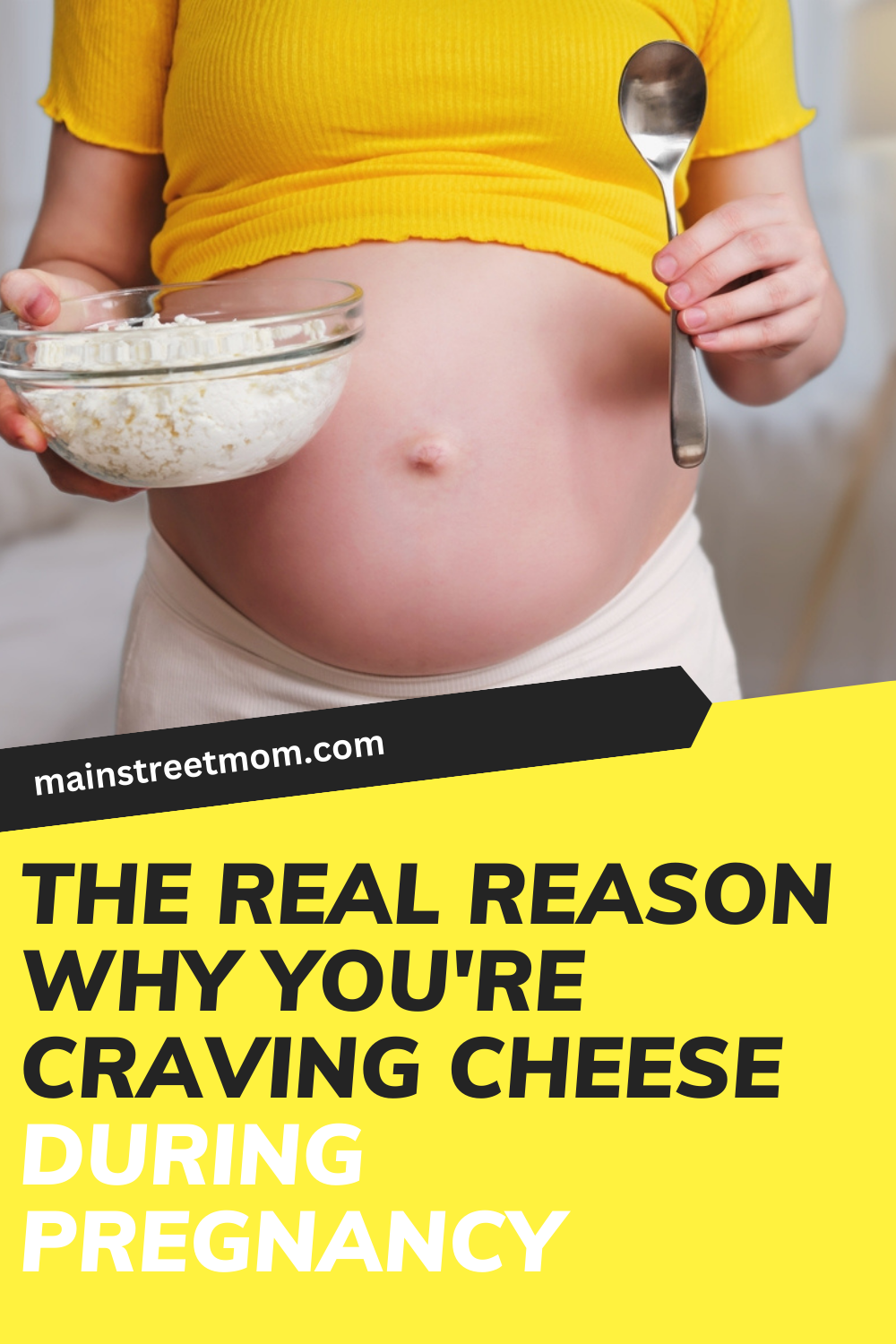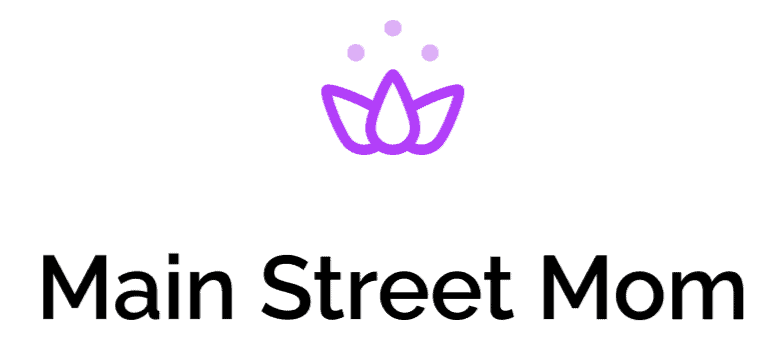When you’re expecting a baby, you say goodbye to wine, charcuterie boards, and blue cheese. Pregnancy comes with a myriad of changes to your body, and that’s why you’re expected to change the way you eat, sleep, and even behave to appease your baby. What’s the tea with craving cheese during pregnancy?
Pregnancy typically starts with morning runs to the bathroom and a sense of repugnance toward certain foods, but pregnancy cravings are right there with them. We don’t know whether there’s some sort of correlation between pregnancy cravings and aversions, but they’re the perfect match, nonetheless.
Perhaps you’re not that sad about getting rid of specialty cheeses during pregnancy, but you’re wondering whether the cheese cravings are ever going to stop. Pregnancy cravings can be caused by an array of factors, from hormonal changes and nutritional needs to psychological and cultural expectations.
Women experience pregnancy cravings throughout the entire pregnancy, but they’re typically the worst during the first trimester. Whether you’re craving healthy foods (fruits and veggies) or unhealthy foods (potato chips, french fries, and burgers), you’re probably overthinking everything you eat.
Worry not, craving cheese during pregnancy doesn’t mean that there’s something wrong with you. Cheese might not be your doctor’s recommendation, but not all types of cheese are bad for you in the same way that not all types of cheese are good for you. What’s there to know about cheese?
5 reasons why you’re craving cheese during pregnancy
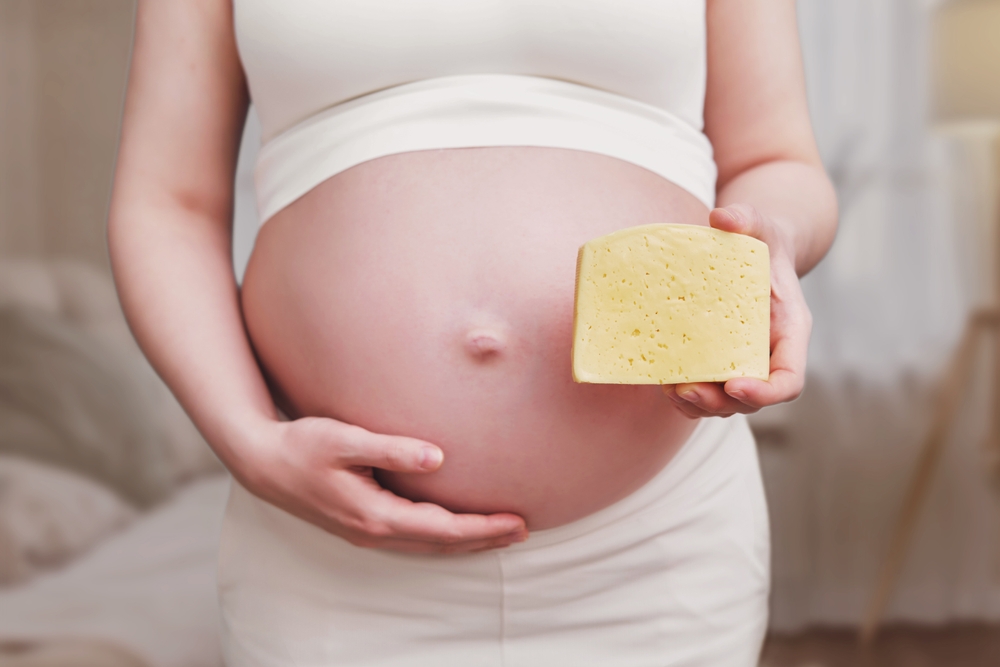
Cheese boards seem to have taken the world by storm right around the time when you found out you were expecting a baby. You were struggling to eat anything at the time and that’s why you weren’t concerned with cheese, whatsoever. You’re struggling with cheese cravings now, though.
Why are women craving cheese during pregnancy when they’re not allowed to eat every type of cheese under the sky? Whether we’re talking about hormonal changes, nutritional needs, and deficiencies, or even psychological and cultural expectations, women crave cheese for a million reasons.
1. Hormones
Hormones are at the forefront of all your torments when you’re pregnant. When you’re expecting a baby, your body experiences a surge of pregnancy hormones that pretty much mess everything up – for a good reason, though.
Progesterone and estrogen are the two hormones to blame for your cheese carvings, though. Progesterone and estrogen change the way you perceive taste and smell and that’s why people believe that pregnant women experience a range of pregnancy cravings and aversions.
What you once considered delicious and nutritious might suddenly seem like the worst thing to eat. What you once considered disgusting might suddenly become your favorite salty snack. Whatever the case might be, your hormones might be the reason why you’re suddenly craving cheese.
2. Nutritional needs
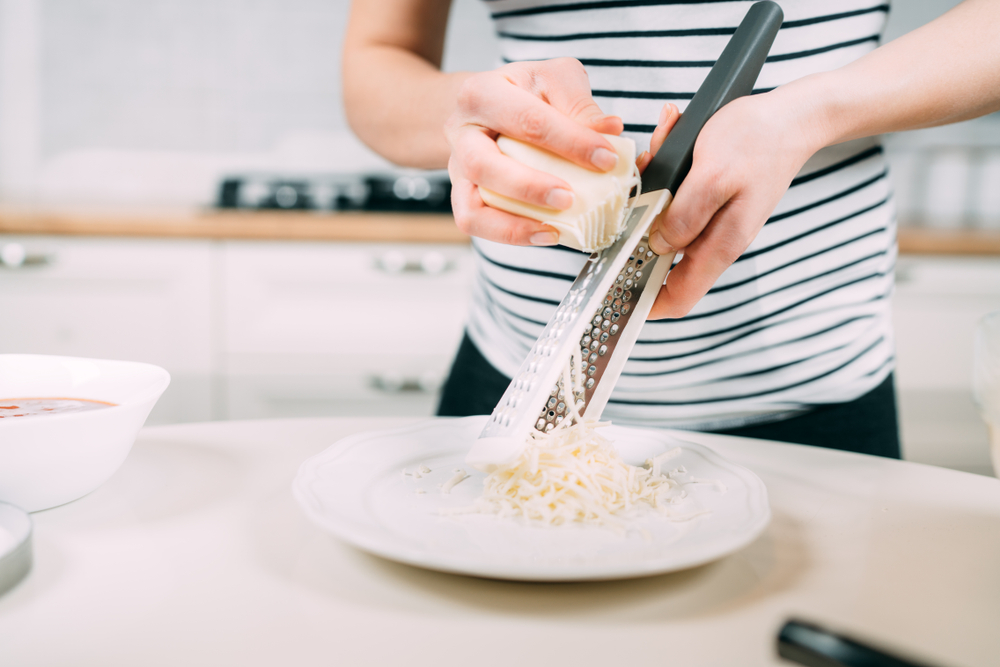
Sure, you’re probably going to experience a sudden surge of hormones that’s guaranteed to change the way you approach food. Sometimes you’re going to resort to cheese because that’s the one thing you can consume without throwing up. But hormones are not the only ones to blame.
Cheese cravings can be caused by a deficiency of specific nutrients such as calcium, essential fatty acids, and protein, too. When you’re pregnant, your body knows exactly what you need to have a happy and healthy baby. Consuming sufficient calcium reduces unfortunate gestational outcomes.
Calcium might actually be the biggest reason why you’re craving cheese during pregnancy. Calcium happens to be associated with proper growth and development of the baby and consuming sufficient calcium can ensure healthy musculoskeletal, nervous, and circulatory systems of the mother.
3. Stress
Why do we blame everything on stress? When you’re pregnant with your first baby, for example, you’re trying to figure out a way to cope with everything that’s going on. You’re overwhelmed by the changes your body’s going through, as well as everything you’re doing to prepare for the baby.
What does cheese have to do with stress, anyway? Consuming cheese can make you happy, as silly as that might sound. Cheese contains a healthy dose of tryptophan, which “triggers the release” of serotonin and makes you feel better about whatever you’re going through.
Giving into your cheese cravings might be doing more than just satisfying your taste buds, after all.
4. Casein
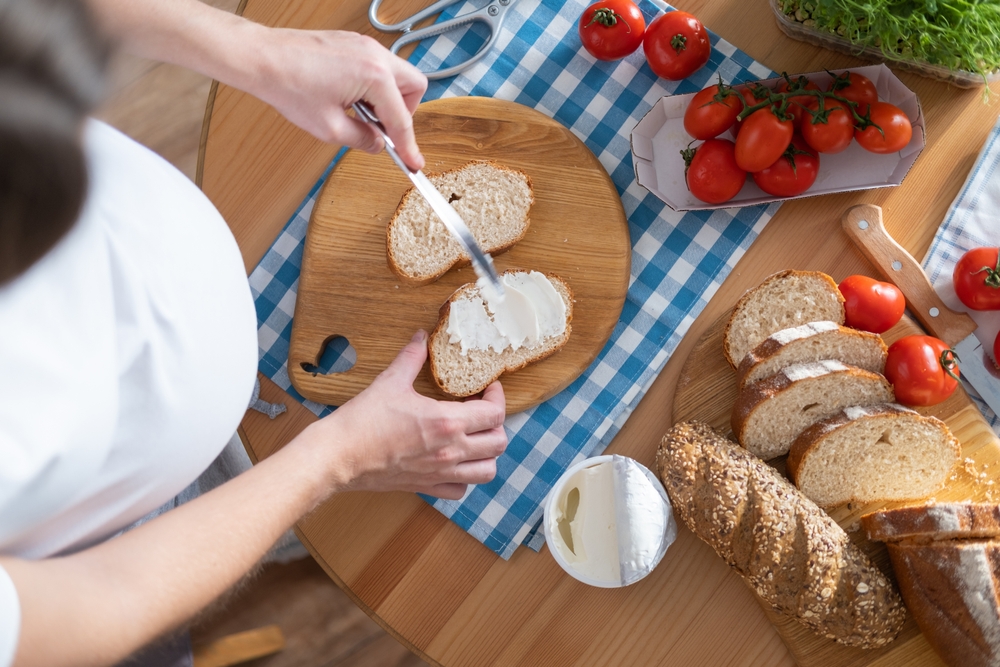
What does cheese do for you when you’re not stressed out, though? Tryptophan might not be the only addicting substance that comes with the charcuterie board. Turn out that cheese contains casein, an addictive protein that has been shown to have the same effect on your brain as morphine.
Casein’s addicting factor might be considered mild, but the fact that cheese contains addicting properties at all attests to the fact that pregnant women crave cheese for a reason.
Cheese contains an amino acid called phenylethylamine (PEA) and an amino acid called tyramine, both of which trigger increased levels of dopamine. Contrary to popular belief, though, a little cheese offers minimal risk and that’s why you shouldn’t be scared to eat a bite or two of cheese when you want to.
5. Psychological and cultural expectations
Whenever you’re talking to a pregnant woman, chances are that you’re going back and forth on the topic of pregnancy cravings and pregnancy aversions. Before you’re even expecting a baby yourself, you’re met with TikToks, Instagram posts, and articles bombarding you with pregnancy facts.
What does that mean? According to researchers, psychological factors and cultural associations can influence cravings and that might be the reason why you’re craving cheese rather than – let’s say – durian or pickled herring. At the end of the day, cheese is one of the most common pregnancy cravings.
Read also: The Dos And Don’ts Of Craving Chocolate During Pregnancy
What are the risks of consuming cheese during pregnancy?
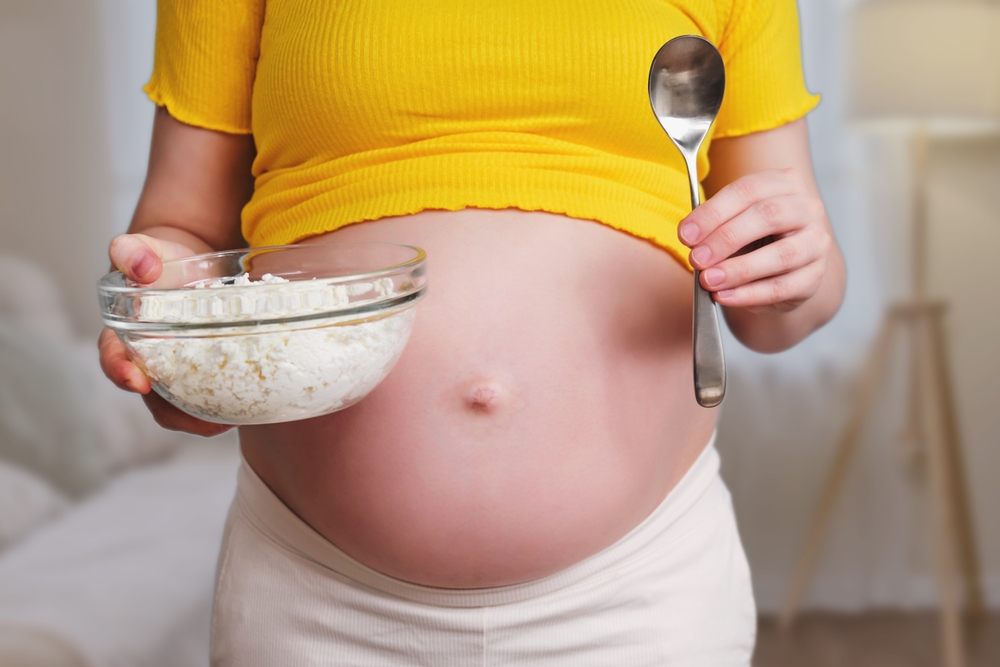
When you’re struggling to eat because you’re disgusted by every food ever, you might resort to cheese because that’s the one food that sounds at least a little bit appealing. Cheese contains calcium which benefits both you and your baby, as well as a bunch of other nutrients.
What are the risks of consuming cheese during pregnancy, though? A little bit of cheese here and there might not be a big problem, but scoffing down every bit of cheese you come by might cause you to experience GI problems or develop high cholesterol and high blood pressure.
We’d say that consuming cheese during pregnancy can be safe, as long as you know what you’re doing. Women who are expecting a baby aren’t allowed to eat every type of cheese out there. Cheese, depending on the type, can contain microscopic organisms such as Listeria and hurt your unborn child.
Now, Listeria typically appears within foods that aren’t stored or cooked properly. Certain types of cheese (mainly cheese made of unpasteurized milk) can contain Listeria and cause the mom-to-be to get sick with a disease called Listeriosis. Listeriosis can cause further harm to the baby.
Which varieties of cheese are not safe to eat during pregnancy?
Oh, you thought you’d have to swear off cheese for the following nine months? On the contrary, you can pay closer attention to labels and consume certain types of cheese safely. Cheese types dangerous for the mom-to-be are soft cheese, mold-ripened soft cheese, and soft unpasteurized sheep and goat cheese.
Soft cheeses are oftentimes made with raw milk, meaning that these cheeses haven’t gone through the process that kills bacteria and organisms such as Listeria. Cheeses such as feta, Brie, and Queso Fresco fall under this category.
Mold-ripened soft cheeses come with the same problems, as well as the fact that mold can oftentimes contain bacteria and organisms, too. Soft unpasteurized sheep and goat cheeses such as chabichou, chevre, pyramid, and torta del cesar are off-limits, too.
Read also: Can Craving Coca-Cola During Pregnancy Harm Your Baby?
Which varieties of cheese are safe to eat during pregnancy?
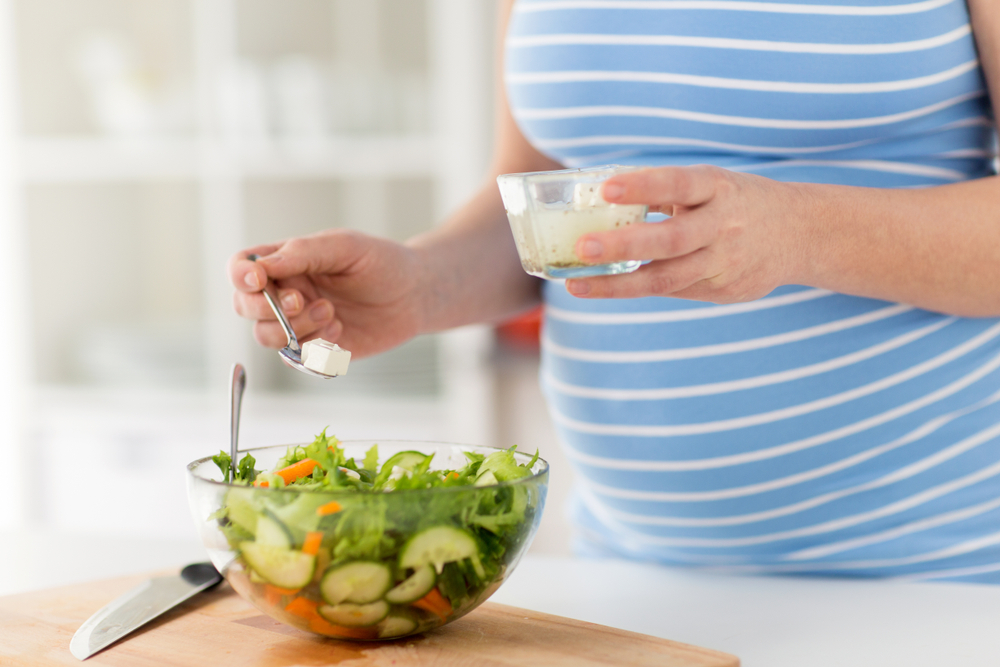
When you’re craving cheese during pregnancy, you might be more concerned with which types of cheese you’re actually allowed to eat. Although you might be freaking out after reading about the “bad” cheeses, you’re allowed to eat all types of cheese that are made with pasteurized milk.
Cheese made from pasteurized milk, hard cheese, and soft cheese made from pasteurized milk are going to become your BFFs whenever you’re craving cheese. Cheddar and similar hard cheeses are allowed although they’re made with raw milk because they’re too dry to develop bacteria.
Curds, mozzarella, cream cheddar, paneer, halloumi, goat’s cheddar, and cream cheeses made from pasteurized milk get the green light, too. Whatever you decide to do, don’t forget to contact your doctor and ensure you’re allowed to eat cheese.
Read also: Eating Ice Cream In Pregnancy: Is It Risky Or Safe?
Does craving cheese during pregnancy mean you’re having a boy?
We can’t forget about the myths and old wives’ tales, right? Whenever you announce to the world that you’re pregnant, you’re bombarded with strange questions by aunties and uncles trying to figure out whether you’re pregnant with a baby boy or a baby girl.
What can we say – you might want to keep your mouth shut about your pregnancy cravings because there’s a myth surrounding the cheese craving, too. Craving cheese during pregnancy typically means that you’re expecting a boy. With that out of the way, though, there’s no scientific evidence to back that up.
